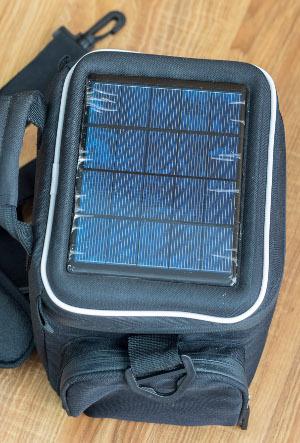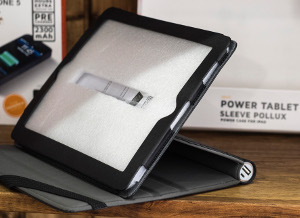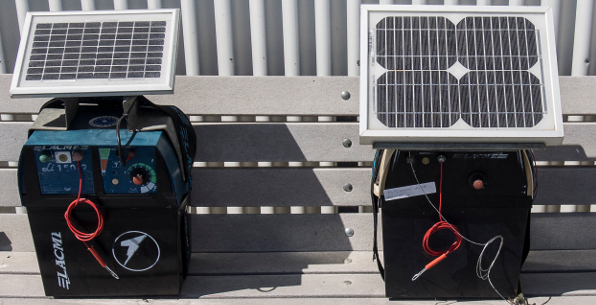
In the current times, we have various energy concerns and not always coinciding. On the one hand, we want to save energy and not always for ecological reasons – the cost of utility bills also carries its own weight. Furthermore, we access an ever larger number of consumer devices without which we would seemingly otherwise not exist: computers, machines for every possible purpose, mobile phones, iPads, iPods, photo and video cameras, etcetera.
As if this dichotomy were not enough, many such devices are portable as everybody has some need to be in contact with everybody at whatever the time even when they have nothing much to say. And then there is the problem of the batteries going flat just at the most important moments, the lack of any other immediate alternative power source, all the confusion resulting and not to mention the stress levels peaking.
However, solar energy is under development and has already begun to make its appearance in the most diverse portable devices for producing and storing energy. ECO123 found various such examples in a small store in the centre of Portimão, ‘Ambiente Hoje’(1): ranging from garden lights for €35 to bags for photographic equipment for €95, which go about recharging the camera battery while out and about; a tablet cover with an incorporated battery and recharging covers for mobile phones, among some of the items that grabbed our attention(2).
We had some doubts about the functional practicalities of these systems and thus went off to visit Sebastian Sennewald of FF Solar(3), a company that has been installing solar energy in the Algarve and beyond for the last quarter of a century. They manufacture autonomous solar energy kits for usage in remote locations and providing enough power for lighting, recharging smartphones through to a USB with a fixed 5 volt current and running a small television.

“The efficiency of the kit depends on the two facets: the size of the panel producing energy and the battery accumulating it. A rucksack, for example, contains a lithium battery with four or five thousand milliamperes, a small 2.5 watt module and a set of adapters. This enables the recharging of a camera, a mobile phone or any other small device”, Sebastian explained to us. “The ideal is to use separate modules and batteries because the solar module only functions with direct solar radiation and, if the battery is incorporated, it is also going to heat up. High temperatures are the enemy of batteries. In the case of rucksacks, because they are designed for recharging while you are out walking, we have to accept this compromise between portability and performance. The module has to be shapeless, flexible; we can cut or bend it and it continues to produce. However, we lose out on efficiency, 7% against the 22% of silicon modules. And it has half of the durability”, he added.
The weak point of such equipment remains the battery, subject to many cycles, changes in temperature, charging and usage along with intermediate charges. There are very efficient batteries that are also very dangerous. The current ideal would seem to be lithium-ferrite that provides for a greater variety of voltages, may be overcharged without danger of explosion and runs over a charging/flat life cycle of over 8,000 recharges.
These clean portable energy sources are ready for use with gains in both the pocket and the ease of users even while equipment should not be selected only according to price say those in the know.
Rua do Carvalho, 16-B – 8500 Portimão
Tel.: (+351) 282 042 400 | 964 097 817
Email: ah.ambientehoje@gmail.com
FF Solar
Parque Industrial da Feiteirinha
Lote 1 – 8670-440 Aljezur
Tel.(+351) 282 998 745
Email: mail@ffsolar.com
Web: www.ffsolar.com
 Eco123 Revista da Economia e Ecologia
Eco123 Revista da Economia e Ecologia


